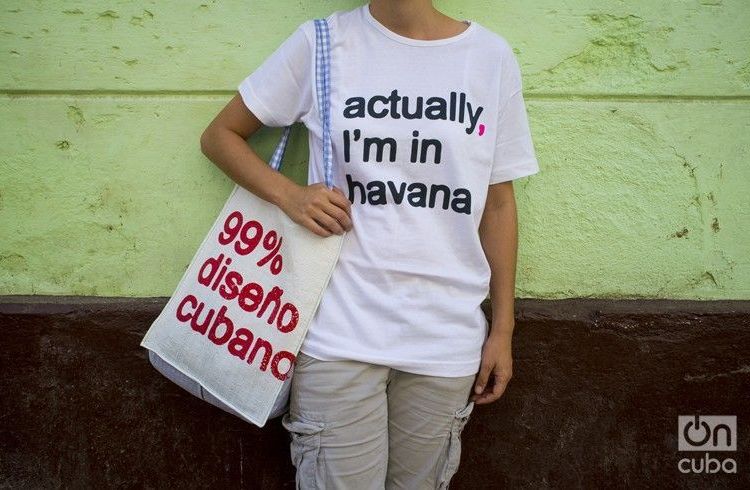Cuban design startup Clandestina denounced the closure of its online store by the U.S. commerce platform Ecwid, in a video that it published on its social networks.
A month ago, Clandestina launched this online store from Havana in order to continue operating and thus face the negative impact of the coronavirus pandemic on the Cuban economy and, especially, the private sector.
But this Wednesday, through an email, Ecwid informed it had to discontinue this service. The reason was that “it was operating from Cuba,” the representatives of this independent Cuban company explained in a statement.
Ecwid operates as an e-commerce platform for small businesses. The way it works allows these ventures to make online sales in a simpler way. In addition, it is designed in such a way that it allows the collection to be carried out manually.
However, Clandestina explained that due to the U.S. blockade/embargo against Cuba, payment gateways are not an accessible route for entrepreneurs based on the island.
“A month ago when we set up the page, there was the option of Cuba. When the first three weeks passed, we realized that Cuba had been removed from the list of countries from which it could be accessed. To continue working we made some changes at the programming level and today, one day after completing exactly one month of activating the page, we received an email confirming that we were unsubscribed,” said Félix González, manager of Clandestina online stores.
The leaders and workers of this Cuban venture regret that this decision was imposed at a time marked by the coronavirus pandemic, which has caused significant losses for the private sector in Cuba and the world and the closure of several self-employed facilities.
“The coronavirus situation is affecting all the economies of the world. The global entrepreneurial sector is looking for solutions so that, without risking the lives of employees, their clients and the community, they can continue to generate income that will allow them to operate in the long term and overcome the crisis. In this scenario, virtual commerce has become, if not the only, but the most efficient way to continue operating,” they pointed out.
Despite this measure against its permanence and development, Clandestina affirmed that “it will not stop.”
With a still limited internet service, the island is experiencing an exceptional moment in which state and private companies are beginning, for the first time and timidly, to provide virtual shopping services.
“We must continue, we can’t stop. We have struggled a lot for five years and we have to keep going. Our priority is to pay our staff’s wages and continue serving our community. But we can’t expose ourselves. Lines must be avoided and social distance maintained, and, under these circumstances, the only way is through online commerce,” says Leire Fernández, executive director and founder of Clandestina together with designer Idania del Río.
The statement affirms that the U.S. blockade/embargo, strengthened by the current Donald Trump administration, is “doing in” the private sector in Cuba.
“The blockade policies are doing in the private sector in Cuba. It is getting harder by the day. They really have to stop and start helping us instead of sinking us,” said Del Río.
Clandestina is the first urban fashion brand that is managed independently in Cuba. Since its foundation, it has managed to sell its clothing and accessories through the Internet and at the headquarters of its store in Old Havana, which before the pandemic was visited daily by a large number of public, both Cuban and foreign.
The brand, which mid last year managed to present its work in a store in Brooklyn, United States, has held exhibitions and fashion shows such as “Country in Construction (PEC)” and “Glorias Deportivas”. In both shows, it has exhibited on a larger scale its designs that combine in a very original and iconoclastic way the spirit of a part of Cuban youth.










